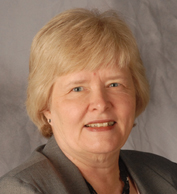FAITH + IDEAS =: last updated 05/19/2009
May 6, 2009 Volume 2 Issue 10
. . . an e-conversation with the Faculty of Gordon College . . .
By Janet Arndt, Ed.D.
When most people lose a job they’ve enjoyed for years, they’re usually anxious and insecure. But Tom Esperson, a student in the graduate program where I work, is leaving his on purpose. He wants to teach. After a long business career as a chief technology officer, he told me he was no longer interested in “helping myself. I want to help others in direct and profound ways.”
Out of all the careers available to someone like Tom, he decided to shift gears in the middle of his life and take a job that would pay him less than he’s ever earned. Why? Why make such a radical change during such an uncertain time?
Because whether the economy is strong or not, I’m convinced that teaching remains the profession behind all others. It shapes the business leaders, it nurtures the doctors. It prepares the pastors and it inspires the advocates. Sure, we remember it all the more during this time of year as semesters are completed and diplomas celebrated. Yet in an increasingly technological and fragmented world, the personal power of a teacher remains the most important job on the planet. The character and gifts of one teacher can inspire an entire movement.
Of course, I would think that. I’m the director of our college’s graduate and licensure program in education. It’s part of my job to convince others throughout the year why teaching matters now more than ever, why the classroom remains one of the most hallowed spaces on earth. And when I consider the teachers who inspired me, it’s not a hard sell.
Most of us can recall the one teacher who genuinely helped us, who challenged us to be better. Her work was more than a job. It was a chance to make a difference in a “direct and helpful way.” Her enthusiasm and integrity went beyond meeting our needs for the day, month or year. She dedicated herself to developing us as whole people, intellectually, emotionally and socially. She wanted us to be capable of navigating our way through life’s hardest experiences.
Thank God for that one, or two, who mattered to us, who invested so much of themselves in us that we couldn’t help but think excellence was possible. Who built such sustaining relationships that we couldn’t help but believe we would accomplish our goals, and in the process, made us want to help others do the same.
To them it was more than an 8:00 a.m. to 3:00 p.m. work day with summers off. They spent so much time planning, preparing, correcting, participating in professional development, and being involved in students’ lives that there was no way to reflect their investment in contractual hours of a work day.
Yes, we all know teachers who, as life-long learners, care deeply about the latest results of a scientific study and pass on that concern to their students. They investigate the findings of a recent archeological dig and inspire young people in the twenty first century to get excited about new discoveries. Each day of teaching is a new beginning. No two are ever the same. Teachers open doors to spectacular worlds and share the privilege of helping others access information, problem-solve, and think critically so that they can open their own doors. As William Butler Yeats said, “Education is not the filling of a pail, but the lighting of a fire.”
Educators, of course, light them in many ways. They’re experts at multi-tasking: engineers (supervisors of block play), chemists (mixers of classroom compounds), biologists (crop growers and animal keepers), writers (letters to parents), readers (paper graders), nutritionists (supervisors of healthy snacks), public speakers (conveyers of truth in lectures), administrators (desk organizers), counselors (ears for personal problems), and nurses (band aid dispensers on field trips). Though these skills wouldn’t find their way onto a resume, there’s a reason parents trust so much of their children’s time to the men or women who stand at the front of the class. Teachers matter.
But now, according to current data, the demand for teachers will exceed 1.5 million over the next decade. Several states are already experiencing a severe shortage. Baby boomers are retiring, leaving vacancies in most states and in all content areas, with a critical shortage in areas like languages, special education, English as a Second Language, math and the sciences. From public, private and charter schools to tutoring, classroom teaching and small group instruction, teachers will be needed in new yet crucial ways.
As a result, loans, scholarships and tax credits make returning to school a viable option for those looking to teach as a career change. And if economic challenges continue, I can’t help but wonder if more people will re-examine their priorities, and decide--like Tom--that the way to spend their lives is to help others in a direct and profound way.
Janet Arndt, Ed.D, is the director of graduate education and licensure at Gordon College in Wenham, MA. She and her husband, Ken, raised four children and live in Windham, NH.
